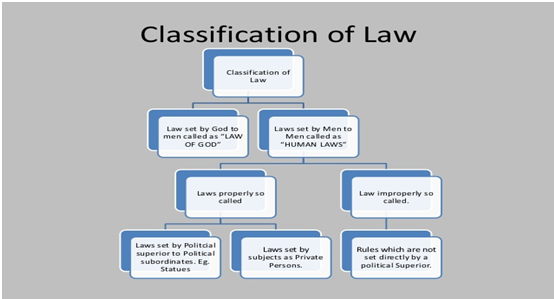Home >> Sociology of Law >> John Austin
John austin
He is famous for his writings " The Province of Jurisprudence Determined" in 1832. Influenced by his Professor Bentham, he wanted to reform the English law and that is positive law. His goal was to transform law into a true science.
To him, law is the command of a sovereign requiring his subjects to do or refrain from doing something. There is an implied threat of 'sanction' if the command is not obeyed. Starting point of Austin theory is his definition of independent and politically organized society and sovereign.
Austin theory based on (a) Command-different from request and wishes. (b) It has an element of fear. (c) Penalty for disobedience.

- Sovereignty always resides in the determinate person or in a body of persons.
- Sovereignty is absolute, indivisible and unlimited. There can only be one Sovereign and all powers should be vested in one single hand be it Legislative, Executive or Judicial Powers.
- A society without sovereignty cannot be called a state. Sovereign may be an individual or a body or aggregate of individuals.
- The determinate human superior is the only lawmaker. His commands are laws and without him the state can have no laws.
- The determinate human has no rival of equal status in the state and nor does he obey the order of anyone.
- The power of the determinate human superior is sovereignty.
- The determinate human superior is subject to none or any power. The bulk of the people obey the sovereign's command as a matter of habit.
|
|
Criticisms
- It conflicts with the basic ideas of democracy
- Austin's determinate human sovereign is superior to all, ignores the massive influence of the electorate, public opinion and the political sovereignty
- Command from superior to an inferior
- Force is not the only sanction behind laws

 |
© 2024 Sociology Guide.Com |
 |



